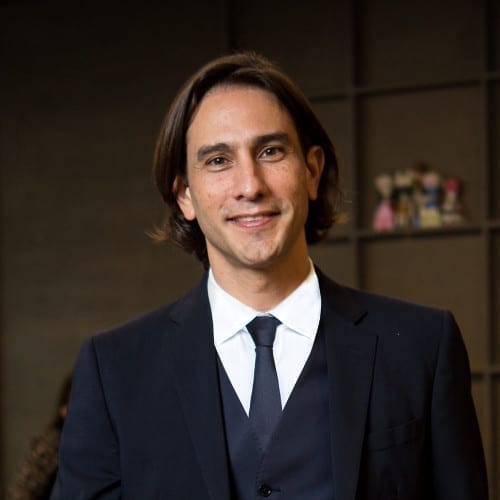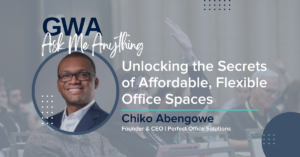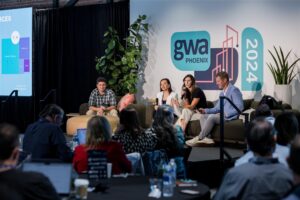“Doing things well doesn’t cost more,” is Javier Garcia’s philosophy when it comes to building a coworking community.
Garcia is a nature-lover, an outdoor-sports enthusiast, and the CEO of IOS Offices, a leading coworking brand originally based in Monterrey, Mexico. Garcia started IOS with his brother in 2007. A decade ago, the company had only two locations. Today, IOS boasts 36 locations in 12 cities, with a team of 264 people and plans to open an additional 6 locations in 2020. The company has managed an average of 30% organic annual growth—and Garcia says they do it by providing top-tier service and continually reevaluating their business model.
Reinventing Business Practices
Garcia has been in the coworking industry for over 20 years, beginning in the 1990s when he and his family had an HQ Business Centers franchise. Although he had been in commercial real estate before that, Garcia said the move to coworking was a good one for him.
“I made it my lifestyle,” he said. “I enjoy it every day.”
“Since I started, I have always been growing,” he explained. “Every few years, we (at IOS) reach this milestone that forces me to reinvent something completely.”
Garcia explained that at these milestones—every two or three years—he and his team at IOS do a “deep dive” into one thing—perhaps finance, or IT, or operations—and find a way to reinvent and optimize that part of the company. Garcia described IOS’ culture as one of experimentation.
“We are basically an experimentalist kind of company,” he said.
For Garcia, being experimental means he and his team is willing to set big goals and try nontraditional methods of getting there. They track KPIs and reevaluate outcomes regularly, which gives them the freedom to try just about anything for a little while, keep what works, and discard the rest.
As a nature-lover himself, one of the experiments for Garcia was to lower IOS’ carbon footprint. From using real dishes to having recycle bins for everything from paper to electronics, Garcia said they’ve been able to “send to the trash as little as possible” and also sell back some of the items they collect via recycling, which helps offset costs.
More recently, the IOS team has experimented with bars in their centers that serve everything from specialty coffee to beer, wine, and spirits. With bars now in 18 locations, Garcia said this experimental idea has “become the life and the soul of our centers.” They plan to expand this offering to all of their locations.
This process of experimentation has paid off in the long term as well. “I did a business plan ten years ago, and we actually are within 1 or 2% of what we planned ten years ago,” Garcia explained. When he made that business plan, Garcia said it was more of a dream than a goal. “As we’ve reached our goals every year, our dreams have become our goals.”
That experience of dreams becoming achieved goals motivated IOS’ next 10-year business plan, which Garcia said others might call crazy. For Garcia and his team, however, their business plan is a natural part of an experimental culture that allows team members to bring their full personalities, interests, and ideas to the table and see what works.
Creating Value
While IOS is willing to experiment with a variety of approaches, services, and community formation ideas, the one thing they don’t waver on is quality.
“We’ve always strived for high quality and for a value-added proposition for our members,” Garcia said. From top line furniture to cutting edge IT and security services, he said IOS’ office designs are “sublime.”
And, importantly, they charge accordingly. Garcia said he doesn’t believe in trying to compete via lowering membership cost instead of competing with higher levels of quality.
“I think it’s a mistake, because office space…is not cheap. We have a nice location in a nice building with nice facilities with good infrastructure. That has a high cost. We need to be able to deliver that to the market, and we need to be able to market that,” he said. “We shouldn’t price low.”
By focusing on quality in both infrastructure and in community services, including events, support services, and general atmosphere, Garcia said they are able to retain clients for an average of seven years—with 65 to 82 percent of their new members each year coming from word of mouth referrals.
By focusing on quality, Garcia says they’ve created a community that can grow and sustain itself. “We are actually working on a community,” he said.
“I would encourage everybody to actually revise our costs and either charge for what it’s worth or maybe we’re in the wrong business,” he said. “The solution is not lower price.”
Creating Community
IOS uses a multifaceted approach to creating community, Garcia explained. Last year, among 36 locations, Garcia said IOS organized over 3,000 events. Some of these were large events, like the IOS Network Summit, which gathers around 1,500 members every year to do a one-day conference in Mexico City. Other events were small weekly or monthly networking events in individual centers.
Helping clients understand networking—literally “your net, where you will get work,” as Garcia explained—is a key part of community building for IOS, helping clients build their businesses but also build relationships within the IOS community, which leads to better retention.
Other events are born out of team interests, such as the annual charity races that IOS runs, which have around 7,000 runners each year. Garcia is a runner himself, and proposed a race as a community building opportunity to his team. He said they loved the idea, organized the race—and were shocked by the results.
“We’ve changed a few lives with races,” Garcia explained. He said the runners are largely members and their families, and the IOS team has been shocked at how people have bought in. Members have changed diet and exercise habits in preparation for the races, and some have even gone on to run other marathons, later contacting Garcia to tell him the IOS marathon changed their lives.
The IOS marathon was also the first charity race in Mexico, raising over $50,000 a year for charities that benefit children, homeless shelters, and other causes.
“Everything we do we have found comes naturally,” Garcia said.
Another natural community builder for IOS has been supporting the clients that create their community. Each year, then, IOS takes applications from startup companies and gives prizes—the top prize being free office space for a year—to top applicants. This allows IOS to help cutting edge companies grow while also making those teams a part of their spaces’ communities.




